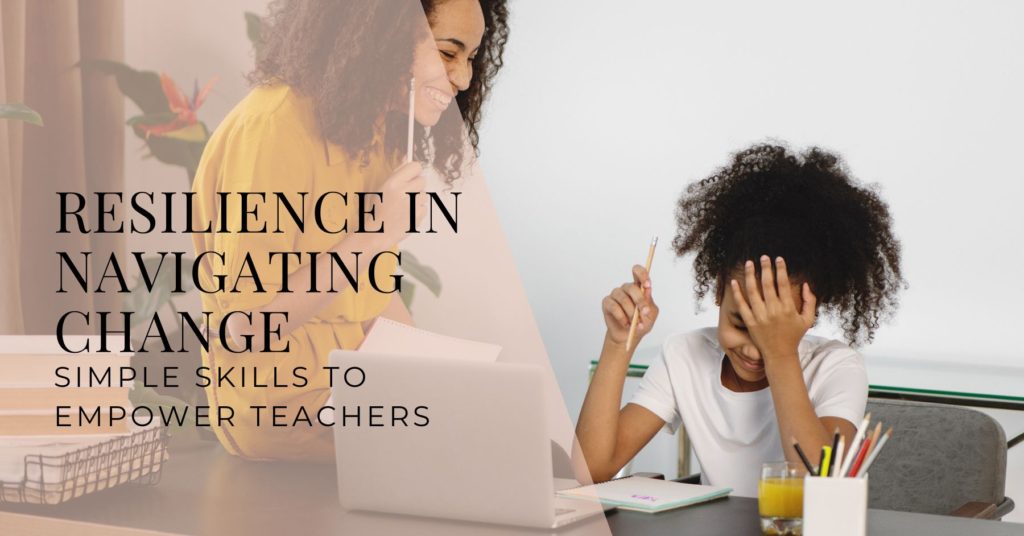Teaching is a rewarding profession, but it’s not without its challenges. If you’ve ever set foot in a classroom, you know what an understatement that is. However, these days, we seem to find ourselves more often navigating through a sea of change and uncertainty. From evolving curriculum standards to technological advancements, we are constantly adapting to new landscapes. Each new year brings new faces, new initiatives, new parents (who may be more challenging than others), and new unknowns. To get through this, it’s important for teachers to build resilience through skills and strategies that will empower them to not only adapt to change but thrive in its midst.
Understanding Resilience
Resilience is the ability to bounce back from setbacks, adapt to change, and maintain well-being in the face of adversity. For teachers who are at the forefront of shaping young minds and molding the future, resilience is a crucial trait. Just like students, we also need to be equipped with the tools to effectively and appropriately cope with the challenges that come our way.
The Impact of Change and Uncertainty
Change is a constant in the field of education. Whether it’s the implementation of new teaching methodologies, shifts in educational policies, or unexpected disruptions (as large as the recent global pandemic and as small as your administrator popping in unannounced), we often find ourselves needing to shift quickly. These changes, especially when piled on one another, can bring uncertainty, stress, and even burnout. Developing resilience skills for teachers is essential to not only survive but thrive in such an environment.

Strategies for Building Resilience
Cultivate a Growth Mindset
Embrace challenges as opportunities for growth. A growth mindset, made famous by Dr. Carol Dweck, helps you view setbacks as learning experiences and fosters a positive attitude toward change.
Practice Self-Care
Prioritize your well-being by incorporating self-care into your routine. Engage in activities that rejuvenate your mind, body, and soul, whether it’s reading, exercise, mindfulness, or spending quality time with loved ones.
Develop Adaptability
Flexibility is key in a constantly changing landscape. Practice adapting to new situations, technologies, and teaching methods. Embrace change as a chance to enhance your skills and innovate.
Build Strong Connections
Connect with fellow educators, mentors, and support networks. Sharing experiences and learning from others can provide valuable insights and a sense of belonging, reducing feelings of isolation.
Mindfulness and Stress Management
Incorporate mindfulness techniques into your daily routine. Mindfulness helps you stay present, manage stress, and make informed decisions, even in uncertain circumstances.
Set Realistic Goals
Break down larger challenges into smaller, manageable goals. Achieving these milestones boosts your confidence and helps you maintain a sense of control.
Seek Professional Development
Continuous learning keeps your skills relevant and enhances your ability to navigate change. Attend workshops, conferences, and online courses to stay up-to-date with the latest educational trends.

Conclusion
As a modern educator, you have the power to inspire the future. Our students look to us as models for how to think, behave, and decide…even if they don’t always show it. Embrace challenges as opportunities for growth, practice self-care and self-compassion, cultivate adaptability, and foster strong connections. Remember, resilience for teachers not only benefits the educator but also creates a positive ripple effect on their students and the education community as a whole. Embrace change with confidence and watch yourself thrive.









